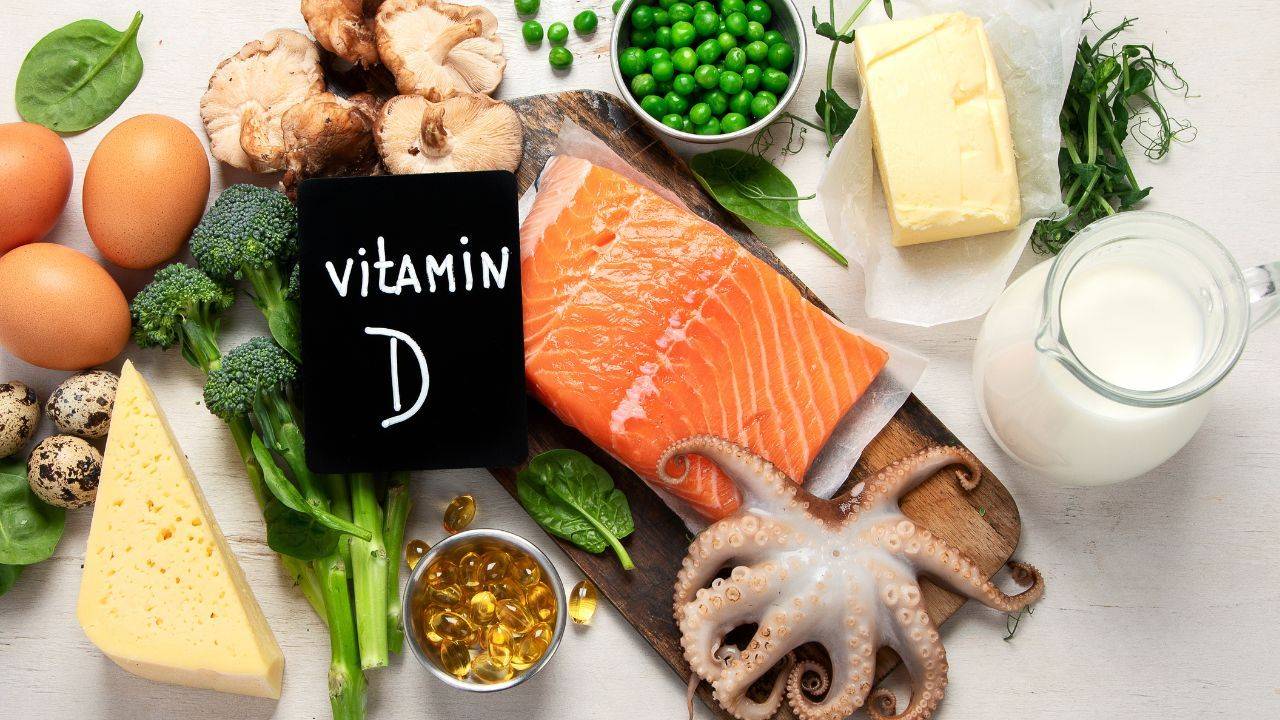The Best and Worst Foods for Plantar Fasciitis: Foods That Help and Hurt

Living with plantar fasciitis can be challenging. Between the stretches, exercises, and anti-inflammatory medications, it may seem like you've exhausted all treatment options. However, one often overlooked factor in managing this painful condition is your diet.
What we eat directly impacts our overall health—including the health of our feet. Certain foods can either worsen inflammation or help reduce it, making diet a crucial component in your plantar fasciitis management plan.
The Best Foods for Plantar Fasciitis
1. Omega-3 Rich Foods
Omega-3 fatty acids have powerful anti-inflammatory properties that can help alleviate pain in joints and muscles. Found in:
- Fatty fish (salmon, tuna)
- Walnuts
- Flaxseed
- Chia seeds
- Avocados
- Eggs
Omega-3s help reduce inflammation and improve blood flow, which may relieve plantar fasciitis symptoms.
2. Bananas
Bananas are excellent for plantar fasciitis patients for several reasons:
- High in potassium, which helps with nerve and muscle function
- Prevent muscle cramping in feet and legs
- Contain vitamin B6, essential for carbohydrate metabolism
- Rich in manganese, which helps produce collagen—an important component of connective tissues
3. Pineapples
Pineapples contain bromelain, a powerful enzyme with anti-inflammatory properties. Additionally, they're high in vitamin C, which:
- Plays a role in collagen production
- Strengthens tendons and ligaments
- Boosts immune function to help repair damaged tissues
4. Dark Chocolate
Dark chocolate (with high cacao content) contains:
- Antioxidants like flavonoids and polyphenols that reduce inflammation
- Flavanols that improve blood flow
- Magnesium, which can help prevent leg cramps and muscle spasms
5. Cherries
Cherries are one of nature's most powerful anti-inflammatory foods:
- Rich in anthocyanins that reduce inflammation and pain
- Studies show they can be more effective than some over-the-counter pain relievers
- High in vitamin C for tendon health
- Cherry juice has been shown to reduce plantar fasciitis pain after a few weeks of regular consumption
6. Anti-Inflammatory Vegetables
Certain vegetables contain compounds that reduce inflammation and strengthen the plantar fascia:
- Broccoli, onions, and mushrooms are high in sulfur, a natural anti-inflammatory
- Sulfur helps the body produce collagen, strengthening the plantar fascia
- For maximum benefit, eat these vegetables fresh or lightly cooked
7. Legumes
Beans, lentils, and chickpeas provide:
- Healthy protein and fiber
- Antioxidants called flavonoids that fight inflammation
- High levels of magnesium, which helps relieve pain by relaxing muscles and improving circulation
8. Yogurt and Kefir
These probiotic-rich foods:
- Help cleanse your body of inflammation-causing bacteria
- Contain calcium for bone growth and muscle function
- Provide vitamin K2 for proper blood flow
- Contain vitamin D, which aids healing and prevents injury
9. Nuts
Nuts like almonds, cashews, and pecans:
- Are high in protein and vitamin E
- Contain monounsaturated fats (omega-9) that reduce inflammation
- Provide magnesium, which relaxes muscles in the legs and feet
- Help prevent calcium deficiency, a common cause of plantar fasciitis
10. Apples
Apples are beneficial because they:
- Contain calcium for tissue repair
- Are rich in vitamin C, iron, magnesium, and phosphorus
- Contain bioflavonoids and polyphenols that strengthen connective tissues
- Provide quercetin, an antioxidant that reduces inflammation
- Contain fiber that improves digestion, important for those taking pain medications
Foods to Avoid with Plantar Fasciitis
1. Sugar
Sugar is particularly harmful for plantar fasciitis because it:
- Suppresses the immune system
- Causes blood sugar spikes leading to inflammation
- Increases levels of advanced glycation end products (AGEs), which contribute to inflammation
- Creates internal acidity that makes healing more difficult
2. Alcohol
Alcohol worsens plantar fasciitis in several ways:
- Contains ethanol, which causes inflammation
- Acts as a diuretic, leading to dehydration
- Can increase blood pressure
- Leaves connective tissue tight and stiff from dehydration
3. Fried Foods
Avoid fried foods because they:
- Contain trans fats and unhealthy oils
- Can lead to weight gain, which worsens heel pain
- Are high in cholesterol and sodium, both causing inflammation
- If you must fry foods, use healthier oils like olive oil instead of vegetable or canola oil
4. Dairy Products
Dairy can be problematic due to:
- Casein, a protein that may trigger inflammatory responses
- A1 protein in cow's milk linked to inflammation
- Lactose, which breaks down into sugar and may cause inflammatory reactions
- High purine content, which breaks down into inflammatory uric acid
5. Caffeinated Beverages
Coffee, tea, and other caffeinated drinks can worsen symptoms by:
- Constricting blood vessels
- Temporarily increasing blood pressure
- Contributing to dehydration, which makes swelling worse
6. Processed Meats
Sausages, bacon, hot dogs, and lunch meats are harmful because they:
- Contain high levels of sodium, causing fluid retention and swelling
- Are often high in fat and cholesterol, which reduce blood flow to your feet
- Typically contain preservatives that may trigger inflammation
7. Refined Grains
White bread, pasta, and processed cereals should be avoided because:
- They're rapidly digested, causing blood sugar and insulin spikes
- They contain inflammatory lectins
- Their high starch content easily converts to sugar in the body
- Choose whole grains instead for less inflammatory effects
8. Sugary Drinks
Soda and other sweetened beverages:
- Are full of empty calories that can lead to weight gain
- Cause blood sugar spikes and inflammation
- Contribute to bone loss and kidney issues
- Provide no nutritional benefit
9. Vegetable Oils
Oils like corn, soybean, and sunflower are problematic because:
- They're high in omega-6 fatty acids, which can promote inflammation when consumed in excess
- They increase production of inflammatory compounds like arachidonic acid and prostaglandin E2
- Better alternatives include olive oil and coconut oil
10. Processed Foods
Highly processed foods should be limited because they:
- Contain preservatives, additives, and high levels of sugar and fat
- Are typically high in sodium, causing water retention and swelling
- Can cause bloating and digestive issues, which may worsen your condition
Additional Home Remedies
Beyond diet, these approaches can help manage plantar fasciitis:
Supplements
- Magnesium helps relax muscles and reduce swelling
- Turmeric contains curcumin, which reduces inflammation
Stretching Exercises
- Daily stretching improves flexibility in feet and ankles
- Toe-touches, butt kicks, and bridges are particularly effective
- Aim for 10 minutes of stretching exercises daily
Hot or Cold Therapy
- Ice packs reduce swelling and pain (15 minutes at a time)
- Heat therapy improves blood flow (20 minutes several times daily)
Massage
- Increases blood flow to affected areas
- Helps stretch tissues around the affected area
- Try golf ball massage or use a massage gun for convenience
Conclusion
Managing plantar fasciitis effectively often requires a multi-faceted approach. By incorporating anti-inflammatory foods into your diet and avoiding inflammatory ones, you can support your body's natural healing processes.
Remember that everyone's body responds differently to dietary changes. The key is to identify what works best for you through careful attention to how different foods affect your symptoms.
Combined with regular exercise, proper rest, and other treatment methods, dietary changes can significantly reduce the impact of plantar fasciitis on your daily life.





